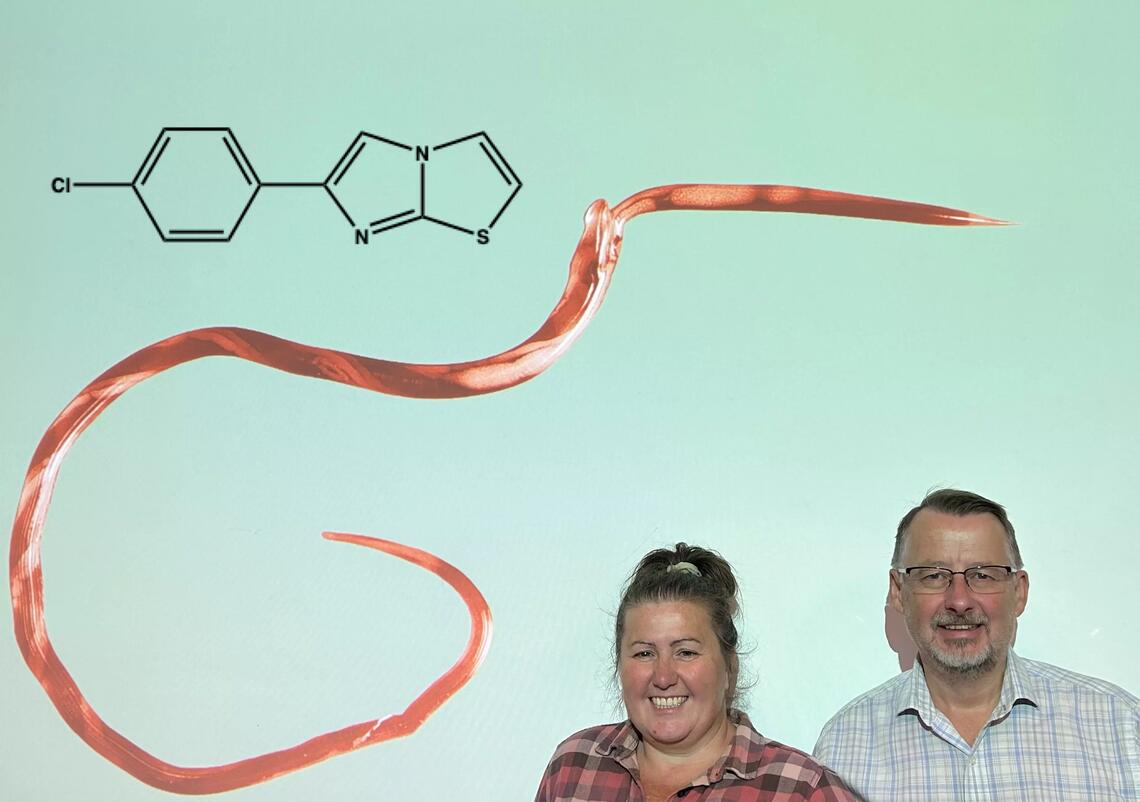Sept. 6, 2023
Collaborative research identifies new, more environmentally friendly drug class targeting parasitic worms

If someone mentions parasitic worms, the first thing you might think about is deworming your puppy. However, parasitic worms have much wider societal impacts. They affect food production through damage to our livestock and crops, and cause major global health problems which infect over a billion people worldwide.
Faculty members Dr. John Gilleard, PhD (Faculty of Veterinary Medicine - UCVM), Dr. Constance Finney, PhD (Faculty of Science) and postdoctoral research associate Dr. Elizabeth Redman, PhD (UCVM), have contributed to the discovery of a new class of anti-parasitic compounds recently published in the journal Nature. The research team was led by Dr. Peter Roy and Dr. Andrew Burns from the University of Toronto, and comprised members from multiple institutions.

John Gilleard and Elizabeth Redman
Ewan Gilleard
“Controlling parasitic worms in animals, humans and crops is currently highly dependent on broad spectrum anti-parasitic drugs or pesticides” says Gilleard. “However, these approaches are unsustainable, partly due to the parasites becoming resistant to these pharmaceutical compounds, and partly due to their negative environmental impacts on invertebrate communities in soil and aquatic environments.”
“There is a need for new anti-parasitic compounds which are more selective for the specific parasitic worms (nematodes) than current drugs. This means, they would be less toxic to other organisms such as pollinating insects and other important invertebrates in the environment,” says Finney.

Constance Finney
The University of Toronto team were primarily interested in identifying more environmentally friendly pesticides against crop pests. They screened chemical libraries using the experimental model nematode Caenorhabditis elegans and identified and characterized the activity of a brand-new drug class they called the “selectivins.” The University of Calgary team undertook experiments to show their selectivity and potency against several animal parasite species.
“The neat thing about these compounds is that they depend on metabolic enzymes in the worms to activate them to their toxic versions,” says Redman. “The equivalent enzymes in other organisms are not able to activate the selectivins in their cells and therefore are unaffected.”
UCalgary researchers’ involvement in this collaboration was enabled by Office of the Vice-President (Research) seed funding under the Infections, Inflammation and Chronic Diseases (IICD) research theme and the Host-Parasite Interactions (HPI) research network.
“This work will potentially lead to more environmentally friendly control of parasites of crops, domestic animals and humans and is a great example of the power of multidisciplinary collaborations across institutions,” says Gilleard.







